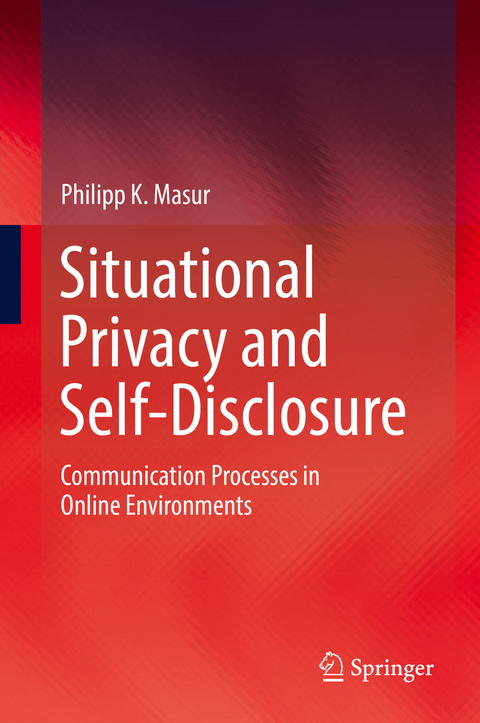
Situational Privacy and Self-Disclosure
Springer International Publishing (Verlag)
978-3-319-78883-8 (ISBN)
To this end, the book is divided into three parts. Part I advances the theory of situational privacy and self-disclosure by discussing impacts of new information and communication technologies on traditional theories of privacy and self-disclosure. Based on five basic suppositions, it describes three major processes of the theory: pre-situational privacy regulations processes, situational privacy perception and self-disclosure processes, and post-situational evaluation processes. Next, Part II presents the application of the theory to smartphone-based communication. It first analyses how people choose certain communication environments on their smartphones, how they manipulate them, and how these external factors affect self-disclosure within these environments. It then details a multi-method study conducted to test the derived assumptions and discusses the obtained results. Part III reflects on the overall implications of the theory, summarizes the major findings and lastly considers possible extensions and perspectives on future research.
Intended mainly for researchers in privacy and communication studies, the book offers privacy scholars a systematic review of both classic and contemporary theories of privacy and self-disclosure. At the same time, communication scholars benefit from an additional methodological discussion of the mobile experience sampling method, which provides an invaluable approach to measuring situational communication processes.
Philipp K. Masur is a research assistant at the Department of Media Psychology at the School of Communication of the University of Hohenheim (Stuttgart, Germany). His research aims to provide insights into computer-mediated communication, and he is especially interested in the psychological experience of privacy in online environments.
1. Introduction.- 2. New Media Environments and Their Threats.- 3. Theories of Privacy.- 4. Theories of Self-Disclosure.- 5. Connecting Privacy and Self-Disclosure.- 6. Privacy and Self-Disclosure in the Age of Information.- 7. The Theory of Situational Privacy and Self-Disclosure.- 8. Applying the Theory to Smartphone-Based Communication.- 9. Methods.- 10. Results.- 11. Discussion.- 12. Overall Discussion.- 13. Overall Conclusion and Outlook.- A. Additional Tables and Figures to Chapter 9.- B. Additional Tables and Figures to Chapter 10.- References.
| Erscheinungsdatum | 14.07.2018 |
|---|---|
| Zusatzinfo | XIII, 394 p. 30 illus. |
| Verlagsort | Cham |
| Sprache | englisch |
| Maße | 155 x 235 mm |
| Gewicht | 771 g |
| Themenwelt | Sozialwissenschaften ► Kommunikation / Medien ► Kommunikationswissenschaft |
| Sozialwissenschaften ► Kommunikation / Medien ► Medienwissenschaft | |
| Schlagworte | Communication Studies • Empirical Studies in Mobile Computing • Human and societal aspects of security and privacy • Media Psychology • Media research • privacy policies |
| ISBN-10 | 3-319-78883-3 / 3319788833 |
| ISBN-13 | 978-3-319-78883-8 / 9783319788838 |
| Zustand | Neuware |
| Haben Sie eine Frage zum Produkt? |
aus dem Bereich


